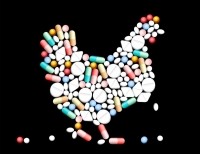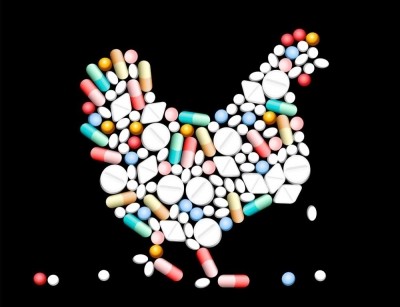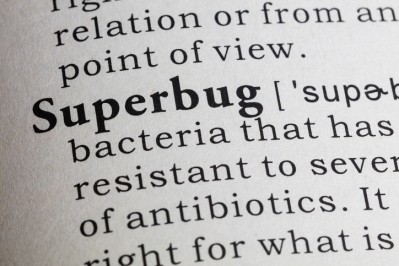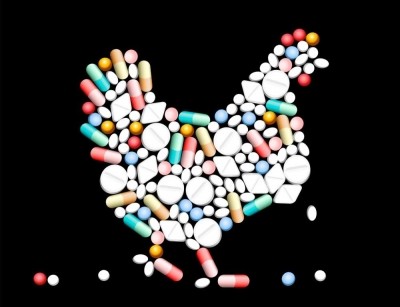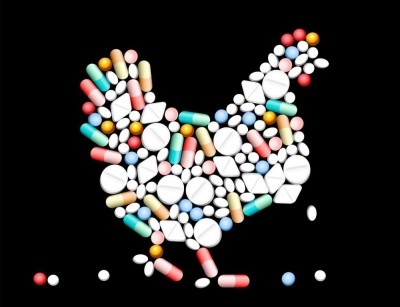Greater monitoring of antibiotic resistance in retail meat needed: UK campaigners
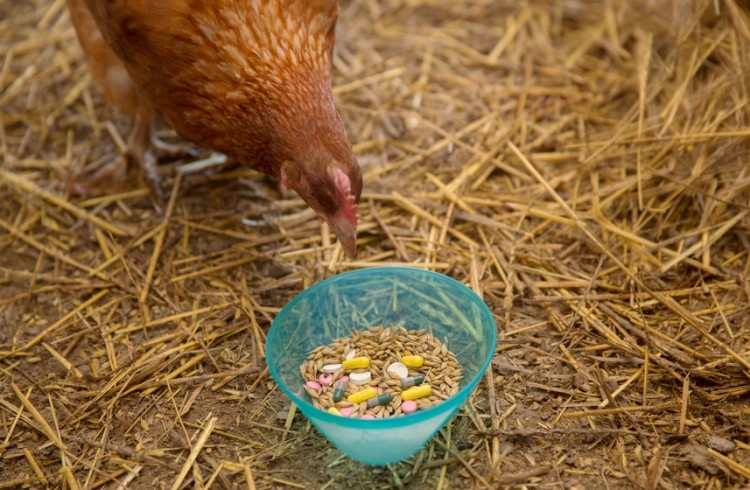
“It was down to us, a not for profit group, to raise funds and carry out an investigation into the extent of the presence of antibiotic-resistant E. coli in pig and chicken meat from major UK supermarkets.
“This kind of inquiry should already have been going on for a long time considering data shows that E. coli now kills more than 5,500 people a year in England alone, but it should be done at government level and it should involve regular testing,” Cóilín Nunan, scientific advisor to the Soil Association and the Alliance to Save Our Antibiotics, told FeedNavigator.
Last week the Alliance published the findings of research it commissioned - the study was the first to examine UK origin retail meat for resistance to a wide range of antibiotics for treating E. coli infections, and found soaring levels of resistance in chicken meat.
The investigation, carried out by Dr Mark Holmes, reader in microbial genomics and veterinary science at the University of Cambridge, found 24% of samples tested positive for ESBL E. coli, a type of E. coli resistant to the ‘critically important’ cephalosporin antibiotics.
A total of 51% of the E. coli from pork and poultry samples were resistant to the antibiotic trimethoprim, which is used to treat over half of lower urinary-tract infections.
Nunan acknowledged the overuse of antibiotics in human medicine is part of the problem, but said increasing scientific evidence from a wide range of studies shows antibiotic usage in livestock production is also an important contributor to antibiotic resistance.
“Even if only a small percentage of those E.coli related deaths in England is linked to antibiotic resistance from the routine dosing of animals on intensive farms, we still need to monitor supermarket meat to determine levels of antibiotic resistance,” he stressed.
FSA set to act on antimicrobial resistance
A report summarizing a Food Standards Agency (FSA) board meeting in June this year on antimicrobial resistance, noted there are gaps in the evidence and it is not possible to determine with certainty the contribution use of antimicrobials in agriculture is making to this issue.
“However, there is an increasingly robust consensus that unnecessary use of antimicrobials in animals and agriculture is a significant concern, and that minimizing the unnecessary and inappropriate use of antimicrobials is an essential component of global strategies to safeguard antimicrobials that are critical for treatment of serious human infections,” concluded the review.
The reported, critically, highlighted current research funded or part-funded by the FSA. Projects in the line-up include:
- A systematic review of the occurrence of antimicrobial resistance in pathogens and commensals in retail food, due to be published this month.
- Rolling surveillance of retail meats in the UK as part of a wider program of EU surveillance for antimicrobial resistance.
- A three-year multidisciplinary study on defining reservoirs of ESBL producing E.coli and the threat posed to personal, animal and public health in the UK, due to be published later this year.
Shared goals
The Alliance to Save Our Antibiotics said livestock farming systems now face the challenge of how to move beyond routine antibiotic use towards health-orientated systems for rearing livestock. It said the kind of shift required is a systemic one - which may necessitate a redefinition of the optimal levels of animal welfare, productivity and farm management.
Nunan said an event in June that the Alliance hosted, involving all UK stakeholders with a long history of disagreements, indicated there has been, albeit fairly recent, a sea change in thinking on the issue.
He said the debate, held in association with The Food Research Collaboration at City University, showed there is now a greater sense that all parties are working toward the shared goals of more responsible antibiotic use and better farm management.
“There has been a lot of denial for many years, there is less of that now, there is also a growing recognition of resistance to antibiotics within farm animals themselves, with problems related to swine dysentery and resistant strains,” continued Nunan.
He recognised the significant reductions in antibiotic use the UK poultry sector has made, and the fact it has been the most transparent in publishing usage data.
“But the UK poultry sector has an advantage over other segments in that the birds are already heavily medicated on the basis that the sector uses a lot of anticoccidial drugs,” said Nunan.
The UK pig sector, ranked as the largest user of antibiotics in UK animal husbandry by sales data generated by the Veterinary Medicines Directorate (VMD), has also pledged to track and publish data on antibiotic uptake in the segment.
“However, the pig sector said it cannot make significant inroads in antibiotic reduction until it has that data. We don’t agree. Dutch producers move ahead on reduction efforts despite only have sales data to rely on,” said Nunan.
